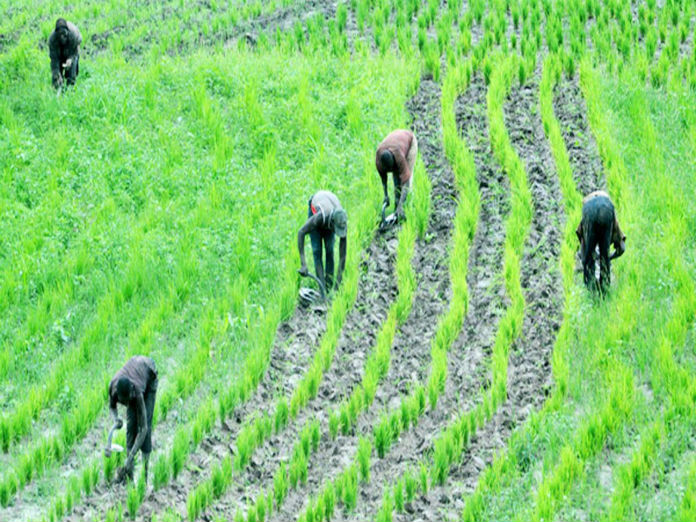Exporters call on FG to slash quarantine tariff on farm produce
Oru Leonard
Exporters in the Airfreight business in Abuja has called on the federal government to slash quarantine tariff on farm produce as a way out to low exports activities on agricultural product in the country.
Some of them who spoke in an interview on Sunday in Abuja said that these tariff has pushed alot of customers out of business because no return on investment.
They attributed the outrageous quarantine tariff under the Federal Ministry of Agriculture as one major factor hampering the exports business calling on federal government to slash tariff.
They noted that the Nigerian Agricultural Quarantine Service (NAQS), is responsible for issuing clearance for agro exports/imports, issuance of certificate for the passage of agricultural plant products into or out of the country.
Mr Sunday Akintunde, the Chairman of the Airfreight forum said that the cost of exporting in Nigeria was too high which discourages exporters.
He said that exporters prefer to carry their goods to Ghana and export it with Ghana label to other part of the world thereby growing Ghana economy instead of Nigeria economy.
“We have a lot of challenges, one of it is the cost of exporting cargo and any business man that wants to do business has an interest which is return on investment.
“Why are we having this issue? We are having this issue because of bureaucracy; we have issues with government agencies, inspection agencies like those in charge of issuing form CCI (Certificate of Capital Importation)
“Government needs to review their policies, they are a lot of bottlenecks, the world is changing, so much time is wasted on Manual documentation,” he noted
Mr Lanre Akerekan, from National Association of Government Approved Freight Forwarders (NAGAFF) said that quarantine services charges N5000 per kilo of any farm produce which was outrageous.
“The major goods that is exported out of Nigeria, majority of them are foodstuffs.
“Which is being regulated by quarantine service but their tariff now, one kilo is N5000 and you have a weight of 200kg, if you multiply that, 5000 by 200kg how much will it give you?
“The whole 200kg will not cost you more than 20,000 from the market especially in the case of yam, how much will you pay to now clear it.
“This alone is one of the major challenges discouraging farmers from going into export business because you will end up paying so much charges without profit,” he said.
Mr Maaruf Idris, Shea butter exporter said that the major challenge exporters are facing is the high cost of operation due to logistics, tariff and the delay in getting the necessary documentation in due time.
He said that before an exporter finished with all the certification from the various agencies, some of the goods are already getting bad.
“The major issue we are facing is logistics because there is a lot of issues from moving the product from the villages; security is part of the challenges.
“We are getting delay from certification and issues with document; it takes longer than necessary from National Export Promotion Council.
“Government needs to look into the issue of the charges and also review those policies causing bottleneck,” he advised
Responding to these issues, The Executive Secretary of Nigerian Shippers Council, Mr. Hassan Bello said that the council was working with all relevant stakeholders in the sector to address those challenges.
He said the main objective of the council was to fast track clearance of cargoes and ensure adequate storage of cargoes and perishable items, to attract more exporters into the business.
“We have to take into consideration the cost of cargo, some costs are not justified, they are not tied to service and that is what we have been calling for.
” The shipping companies have been very understanding; we have gone through all the cost so that we can have a template.
“We are not going to control cost but we will not allow arbitrary charges in the Nigerian port industry in the course of clearing cargoes.”
According to him, NSC as a regulatory body will ensure that export activities is streamline and charges reduced to enhance international trade.




